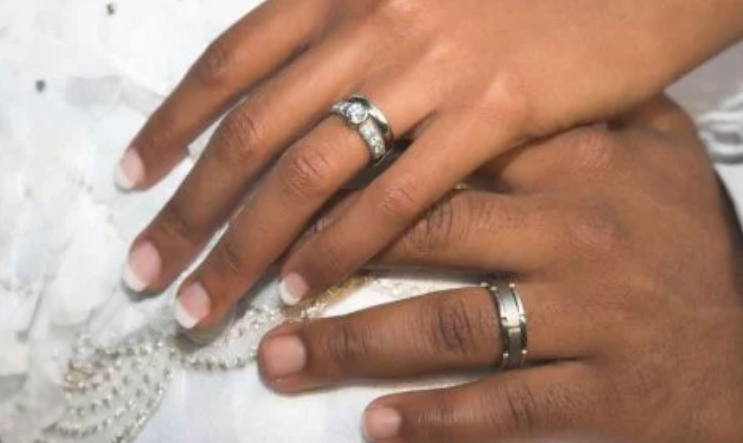A Kenyan woman has suffered a blow after a judge who presided over her marriage ceremony dissolved the same and ordered her to refund her husband Sh150,000 bride price.
The unnamed woman will be forced to refund the dowry after her attempts to block repayment of the same was denied by the High Court.
Justice Reuben Nyakundi noted that the application to set aside an order requiring the woman to refund the amount could not be allowed since she is in breach of the terms of the consent entered last year before the Court.
The judge further said that the consent judgement entered between the woman and her husband is clear on its terms that the woman is in default to pay the dowry as set out and agreed hence the judicial review remedy was not available for her.
“That being my view of the matter, the judicial review application by the woman falls flat on its face. The resultant judgement of April 10,2019 remains a binding covenant between the parties as of now capable of being enforced as a valid court order,” the judge said.
Justice Nyakundi said that from the record, the judge facilitated the parties to adopt the consent to meet the ends of justice in the matter.
The dispute began at the judge’s Court in Mariakani when the couple sought to end their marriage after an irreparable family disagreement.
The man filed for divorce, which the wife did not object to. So, with the help of the court, the couple was allowed to dissolve their marriage.
In a consent judgement dated April 30, 2019, the judge annulled the marriage and as a result of the nullification, the woman was to compensate the man of his bride price.
According to court records, the refund was to be done in three equal instalments of Sh50,000 with effect from May, 2019.
But instead of making the payment, the woman filed a judicial review at Malindi court seeking the setting aside of the judgement by the judge.
She argued that she was not accorded an opportunity to be heard at the Muslim court resulting in the judgement requiring her to refund the dowry.
“The judge proceeded to hear the case despite the fact that I neither filed my defence nor a response for that matter or been afforded time to do so. The judge did not further advise me of options or right to do so,” she lamented.
She also laments that the judge, without enquiring on whether the summons were served on her or not, and without asking for proof of service of the same and plaints, he proceeded to hear the case.
“On the same date, with little or no legal knowledge nor representation and without the advice of the judge as an officer of the court, at the same time under duress, coercion and intimidation by the man, I was compelled to sign an agreement to pay him back his dowry of Sh150,000,” she lamented.
Of interest was that the divorce case was filed and dispensed with on the same date with the judge recording the terms of the alleged agreement as an order of the court.
“The judge gave further orders dissolving the marriage there and then despite there being no indication in the proceedings that the parties had negotiated to settle the matter. The judge did all these despite being the one who presided over the marriage ceremony,” the woman protested.
She had accused the judge of failing to ensure that she was served with the divorce papers before the matter could be heard and determined as well as failing to allow her to file her defence.
Following the annulment of the marriage and the refund order, the woman laments that her former husband has resorted to intimidating her for the payment ordered and has now threatened execution of the same by way of committing her to civil jail.
“I am apprehensive that the interested party (former husband) shall commence the process of the threatened execution against me anytime from now for my failure of meeting the terms of order of the court,” she says.
The man, however, accused the woman on failing to disclose material facts that would have assisted the court to arrive at a just decision.
“The woman on her free will before the judge’s Court stated on oath that she wanted the marriage dissolved on condition of her paying the dowry assessed at Sh150,000,” he said.
He further said that the basis of the consent judgement was on mutual agreement without any coercion or duress on either side or the judge.
“The fact of the matter is due to the default by the woman to fulfil her part of the judgement in settling the dowry compensation. This application has been filed to scuttle the execution process,” he told the High Court.
Justice Nyakundi in his decision said a perusal of the court records shows that both parties appeared before the Court for the hearing of their claim on the dissolution of the marriage, where the woman on her own motion was heard and prayed for divorce.
“The issues were determined, which is characteristics of a case comprised of admission of facts. The learned judge as adjudicating officer had no power to withhold the remedies sought by the parties in terms of the constitution,” he said.
The judge concluded that the first judgment was made following the discretion under the powers conferred in Article 50 (1) of the Constitution to record and adopt the consent of both parties as an order of the court.
“There was nothing illegal, unreasonable or irrational on the part of the judge to proceed to determine the dispute on (the) dissolution of marriage after (the) close of the case for the plaintiff,”
Justice Nyakundi said the woman offered no evidence to enable his court disregard the consent judgement and have it nullified without a proper factual or legal basis.




